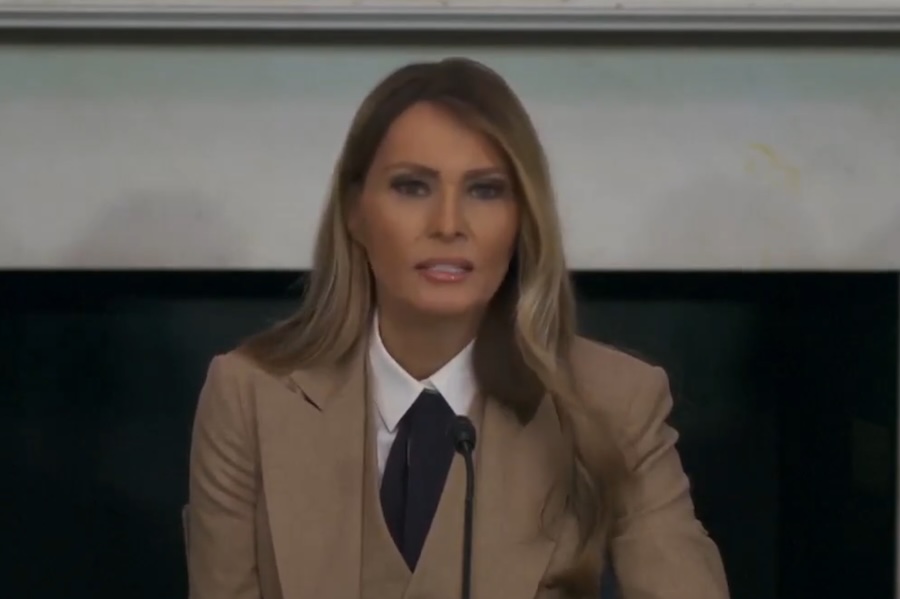Politics
Melania Trump Launches New Initiative With Rare Public Speech

In her first public address since the start of her husband’s second term, First Lady Melania Trump took the stage to advocate for the Take It Down Act, a proposed bill aimed at protecting young people from online exploitation and abuse. Speaking at Capitol Hill, Melania stressed the urgent need to address the growing dangers of non-consensual intimate imagery (NCII) in the digital age.
“I’m here with you today with a common goal, to protect our youth from online harm,” she said. “The widespread presence of abusive behavior in the digital domain affects the daily lives of our children, families, and communities. Addressing this issue is essential for fostering a safe and supportive environment for our young people.”
The Take It Down Act, currently under consideration in Congress, seeks to hold social media platforms accountable for hosting manipulated and explicit content created without consent, including AI-generated deepfakes. Trump highlighted the case of 15-year-old Elliston Berry, who became a victim of NCII when malicious actors used artificial intelligence to superimpose her face onto pornographic images that quickly spread across social media.
“It’s heartbreaking to witness young teens, especially girls, grappling with the overwhelming challenges posed by malicious online content like deepfakes,” she said. “We must prioritize their well-being by equipping them with the support and tools necessary to navigate this hostile digital landscape.”
The First Lady called on lawmakers to take bipartisan action, noting the cooperation between Republican Senator Ted Cruz (R-TX) and Democrat Senator Amy Klobuchar (D-MN) in supporting the bill. However, she also pointedly remarked on the lack of broader Democratic participation in addressing the issue.
“I must admit, however, I expected to see more Democrats to address this serious issue,” she said. “Surely as adults, we can prioritize America’s children ahead of partisan politics.”
WATCH:
“This legislation is essential for addressing the growing concerns related to online safety, protecting individual rights, and promoting a healthier digital environment,” she said. “By advocating for this bill, Congress can take an important step toward ensuring accountability and fostering responsible online behavior.”
If passed, the bill would make it a federal crime to knowingly publish or threaten to publish non-consensual intimate images, including realistic AI-generated depictions. The act clarifies that consent to create an image does not equate to consent for its public distribution.
A key provision of the act requires online platforms to remove NCII within 48 hours of receiving a valid request from a victim. Platforms must also take reasonable steps to delete duplicate content, with the Federal Trade Commission (FTC) overseeing compliance.
On February 13, the U.S. Senate unanimously passed the act. The bill now awaits consideration in the House of Representatives.
The bill has gained support from over 100 organizations, including major technology companies like Microsoft, Snap, and Meta, as well as advocacy groups focused on combating sexual violence and exploitation. However, some civil liberties organizations, including the Electronic Frontier Foundation (EFF), have voiced concerns that the bill’s broad language could lead to overreach and potential censorship.
Among the officials present at the roundtable were House Speaker Mike Johnson (R-LA), Representative Maria Salazar (R-FL), and Lisa McCain (R-MI). Melania thanked them for their dedication to the cause on Monday, urging Congress to move swiftly to pass the legislation.

